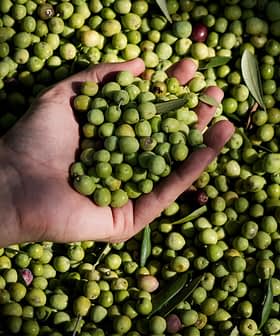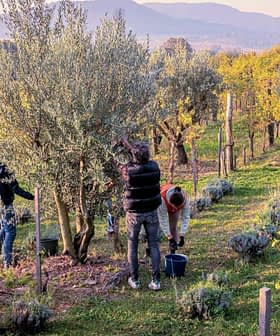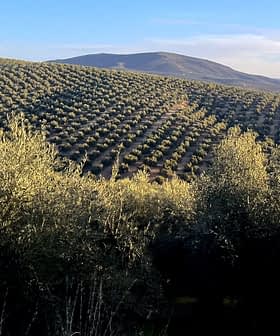University Patents New Extraction Method
The University of Pisa has patented a new method for extracting extra virgin olive oil using solid state carbon dioxide, resulting in a 9% greater yield of oil and 6% more vitamin E. This breakthrough could lead to oils from early harvests being more economically viable due to the oxidation-protecting properties of the gaseous carbon dioxide.
The University of Pisa has patented a new method for extracting extra virgin olive oil.
A research group led by Professor Gianpaolo Andrich began their search for a more effective method of extracting oil from olives in 2008. In their newly discovered method, solid state carbon dioxide, commonly known as “dry ice,” is added to the olives before they are pressed. This causes water molecules inside the fruit to freeze, collapsing the cell walls of the olives.
The research found that this method provides for an average 9 percent greater yield of oil compared to traditional methods. Additionally, the oil contained on average 6 percent more vitamin E and a greater resistance to oxidation. Because carbon dioxide is heaver than air, in its gaseous form it tends to insulate the pulp as it is machined, protecting it from oxidation.
“The olive oil produced using our patent is more closely related to the raw material used, the type of pickled olives and their area ofproduction, and therefore looks like a typical product characterized by clear and unmistakable organoleptic characteristics of the most easily recognizable and identifiable by the consumer,” said Andrich.
The researchers point out that this breakthrough could yield great advantages for the industry. It could mean that oils produced from an early harvest would be more economically viable, as the greater polyphenol and tocopherol content would be preserved by the oxidation-protecting properties of the gaseous carbon dioxide.









